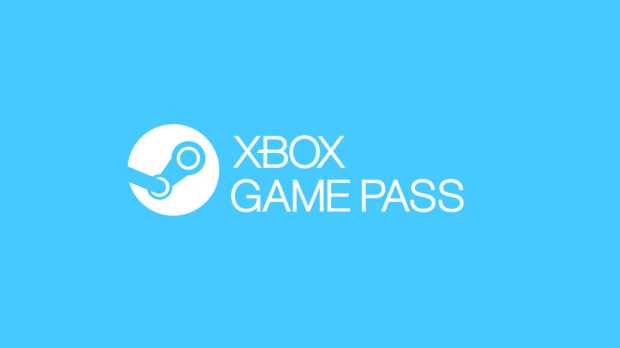Valve has expressed interest in bringing Game Pass to Steam, but could the megaton $70 billion Microsoft-Activision merger change things?
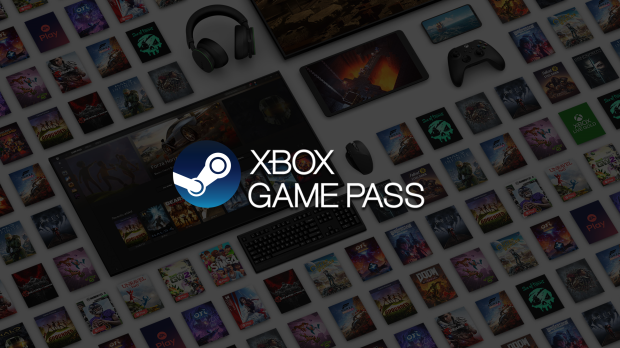
Back in February 2022, Valve's head honcho Gabe Newell said he'd like to work with Microsoft to get Xbox Game Pass on Steam. "We'd be more than happy to work with them to get that on Steam," Newell had told PC Gamer at the time.
Interestingly enough, Newell said this a month after Microsoft publicly announced that it wanted to purchase Activision-Blizzard for $70 billion. On the surface, it looks like Newell and Valve as a whole would be okay with integrating Xbox Game Pass onto Steam on a post-merger level, which could include multiple access points to big PC games like Call of Duty, Diablo, and possibly even World of Warcraft.
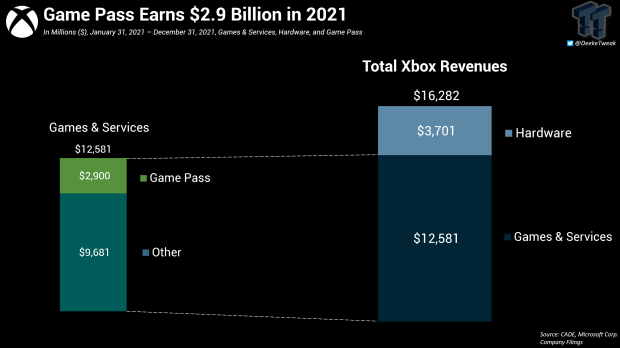
Game Pass is a material contributor to Xbox's total yearly revenues.
Given the incredible value proposition of Game Pass on a post-merger basis, we have to wonder if Valve may be re-thinking its position on this. After all, Game Pass currently offers 400 games on PC and consoles. Newell probably knows about the current value of Game Pass insofar as massive game access and his approval of Steam-Game Pass integration reflects certain understanding of how the subscription could affect Steam.
Perhaps the largest reason that we haven't seen Game Pass on competing platforms is because the subscription's overall value could impact full game sales.
Remember that a good portion of the games offered on Game Pass are also sold on Steam as full-priced games. A good thing to remember, though, is that these games often go on sale on Steam (sometimes with significant discounts). Even still, we have to wonder how Valve would weigh this potential undercutting of games sold on the platform.
Then again, Microsoft has repeatedly said that Xbox Game Pass actually sparks full game sales; Game Pass subscribers are actually purchasing more games as a result of the service. We don't have any hard figures, numbers, or data on this trend, though.
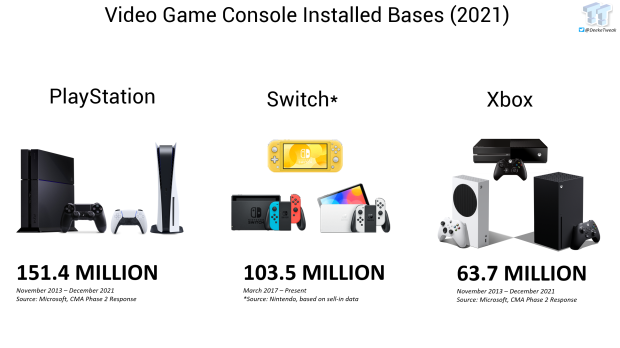
That being said, Valve wouldn't do something that doesn't benefit its business. Valve would likely create contractual clauses, upfront costs, and royalty payment systems to offset any potential impact that Game Pass access could have on sales.
We also have to remember that Call of Duty only just returned to Steam. And what a triumphant return it has been: Modern Warfare II is currently the best-selling game on Steam right now. Would that be the case if it were offered on Game Pass as a day one game?
This is just a theoretical hypothesis, but it's one that should be considered.
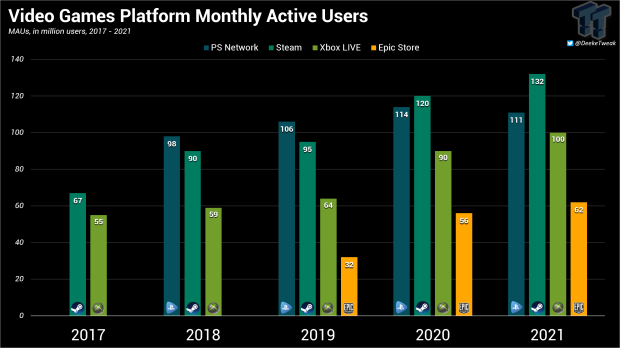
Steam had 132 million MAUs in 2021, representing a 12 million+ increase in monthly active users.
Now more than ever, Steam is an attractive platform for something like Xbox Game Pass. Steam recently passed a 30 million concurrent user milestone and had a whopping 132 million monthly active users in 2021.
On the flip side, though, integrating Xbox Game Pass on Steam could take away userbase from Microsoft's own PC storefront and platform. Microsoft has been trying to build up its PC gaming presence in the form of the Xbox app and Windows Store games presence for many years. So far, Xbox Game Pass has done wonders for this effort by becoming the market leader in PC gaming subscriptions.
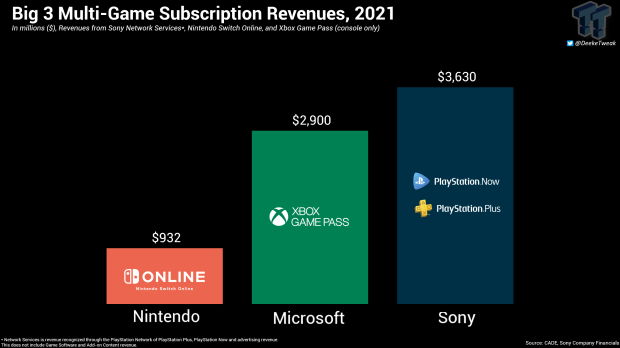
Microsoft made $2.9 billion from Xbox Game Pass revenues on consoles. This does not include PC. Revenues could be higher if the service was integrated into Steam.
How would Game Pass' integration on Steam affect this push? Would anyone use the Xbox app or buy games through the Windows Store if Game Pass was available on Steam? It's hard to say. What's even harder to say is if Microsoft would be okay with their own PC gaming efforts being potentially overshadowed by a competing storefront that they don't retain full 100% revenues from first-party games sold from (and full revenue share for in-game purchases).
Remember that Xbox Game Pass made $2.9 billon on consoles alone, not including PC gaming revenues. The maximal reach associated with Steam could significantly impact overall revenues as more Steam players sign up to the service. Xbox Game Pass had 25 million subscribers as of Q1 2022.
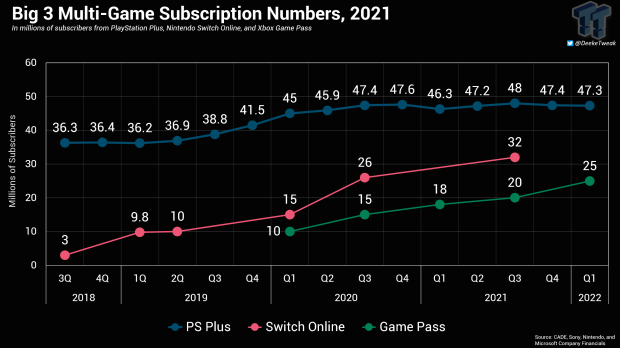
Xbox Game Pass subscriber numbers weighed against PlayStation Plus and Nintendo Switch Online subscribers.
As we can see, there are reasons for and against bringing Game Pass to a platform like Steam on both Valve's and Microsoft's sides. We have to wonder, though, if the incredible value proposition offered by Game Pass would significantly affect the conditions in which Valve would allow such a service onto its platform, e.g. a high-cost premium to potential offset any impact on full game sales.

